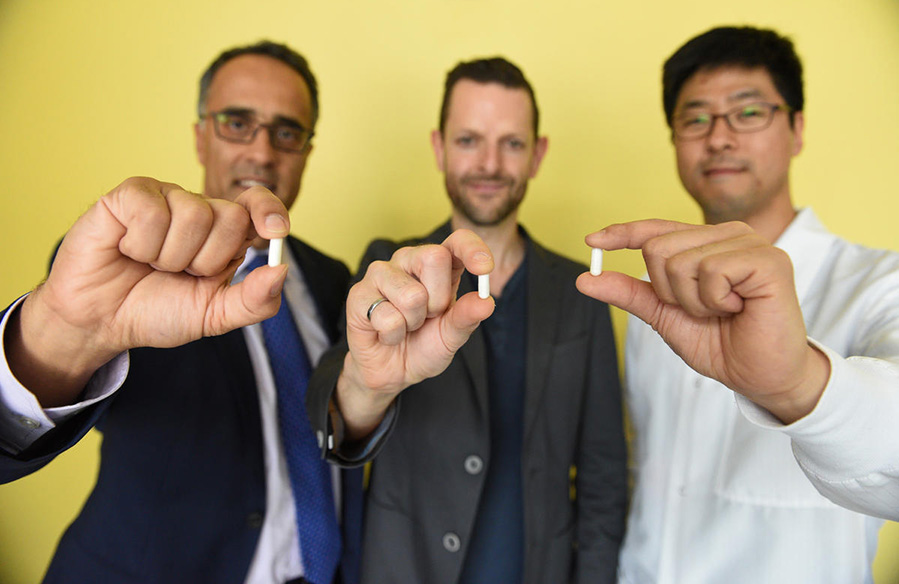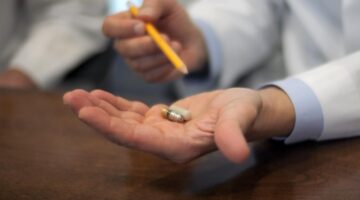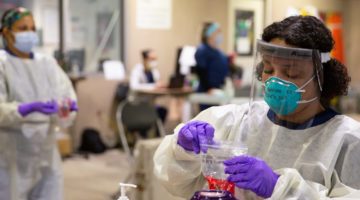
Current medications are not as effective as gastric bypass surgery at treating type 2 diabetes in patients with obesity. Yet, due to cost and other factors, less than 2 percent of U.S. patients who qualify for the surgery opt for it.
A team of Brigham researchers set out to find a less invasive way to deliver the same positive effects as bariatric surgery. Led by bioengineer Jeff Karp, PhD, materials scientist Yuhan Lee, PhD, and surgeon Ali Tavakkoli, MD, the researchers recently published results from their study showing they can reverse type 2 diabetes with a pill that has no lasting side effects.
Karp, Lee, and Tavakkoli reformulated a common stomach ulcer medication that has been in use since the 1980s into a small pill they call luminal coating of intestine, or LuCI. When swallowed, LuCI forms a paste that coats the upper tract of the gastrointestinal system to prevent nutrients from being fully absorbed by the body.
Normally, blood sugars rise after meals and stay elevated over time. Preclinical tests showed the pill lowered blood sugar after meals.
“Gastric bypass is one of the best studied surgeries in the world, and we know it can lead to many benefits, including positive effects for blood pressure, sleep apnea, and certain forms of cancer, and a remarkably fast improvement in diabetes,” says Tavakkoli. “Having a transient coating that could mimic the effects of surgery would be a tremendous asset for patients and their care providers.”











